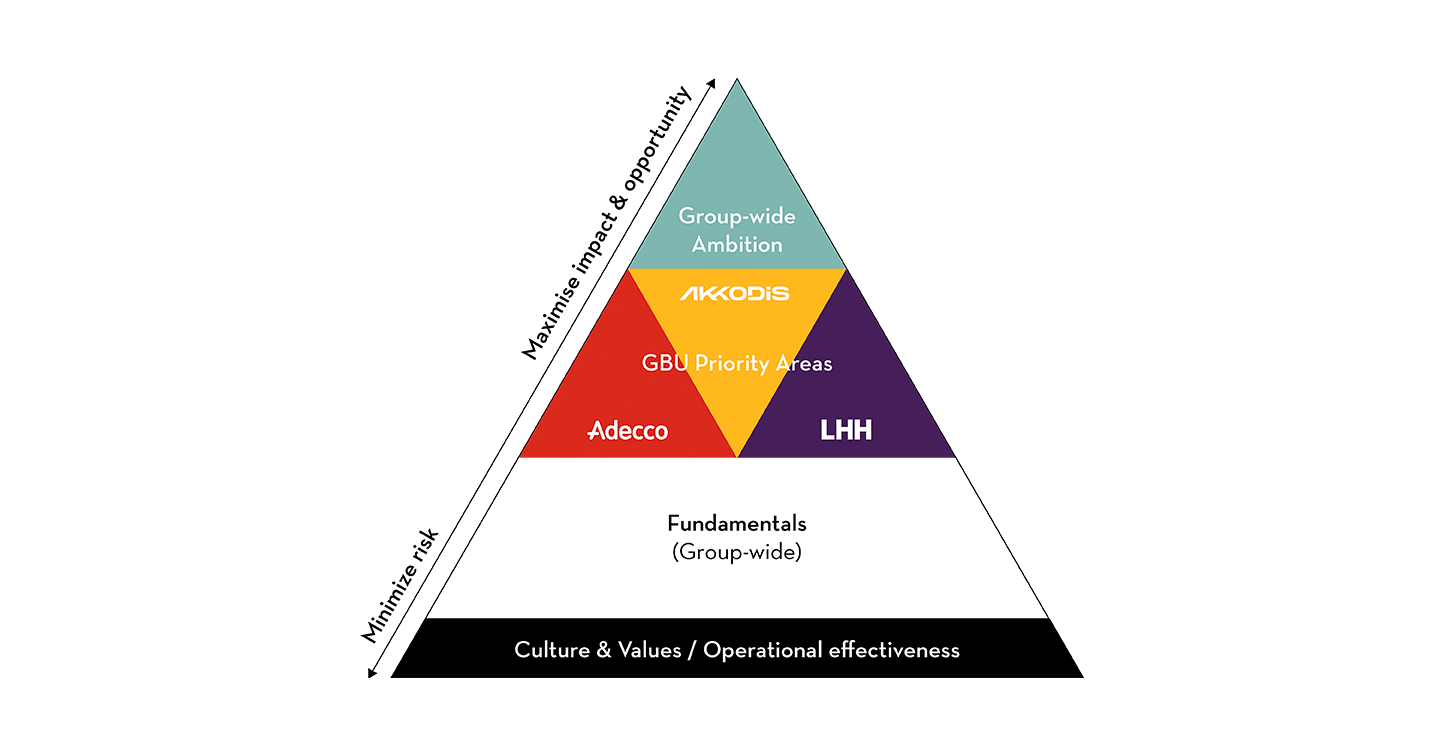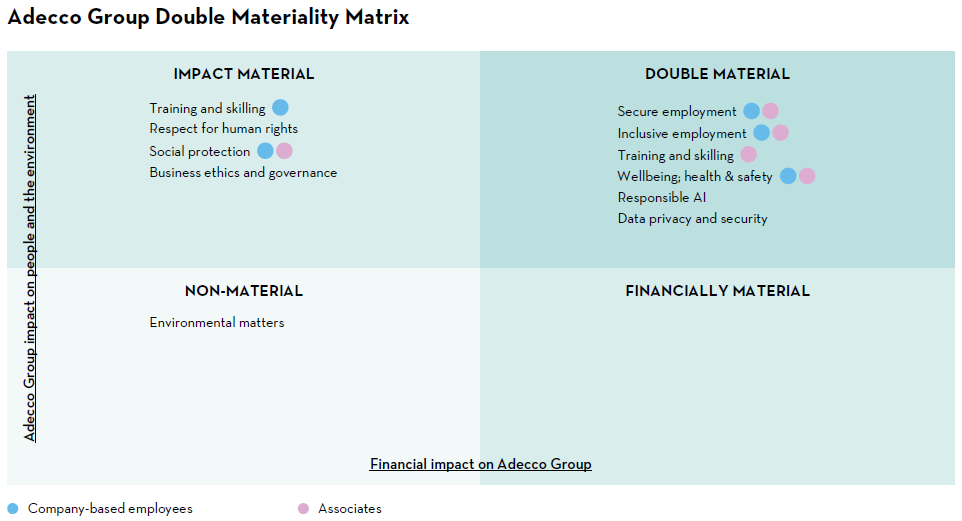Our approach to sustainable value creation
To ensure our approach evolves in line with legislative developments and delivers performance that meets the fast-accelerating expectations of clients, talent, and investors, we need to constantly adapt. We are actively shifting towards an approach that helps us to amplify our positive impact more strategically while harnessing business opportunity. Because when we grow, our positive impact grows.
Our framework

We first completed an extensive benchmarking and stakeholder assessment to understand (upcoming) legislative and soft law requirements as well as the expectations and priorities of our clients (based on direct engagement, analysis of requests for proposals, and their own supplier due diligence), associates (through NPS surveys), investors (based on direct engagement), and our people (based on engagement surveys and town hall feedback).
We mapped the findings against their strategic relevance for our business, their high-level potential commercial impact, our current performance, as well as our ability to influence a given issue. This helped us understand and confirm which topics might be:
- Material to our stakeholders, but of limited ability for us to meaningfully influence (e.g., water and waste).
- Material to our stakeholders and material to our business, but with existing solid or leading performance and thus limited need to prioritise but rather continue to evolve as part of daily business (e.g., data privacy or tax responsibility).
- Material to our stakeholders and to our business, and with opportunity to deepen our impact and/or strengthen our existing approach.
Based on this assessment, we have prioritised action in the areas of inclusion, wellbeing, fair and equal wages, respect for human rights, third-party risk management, carbon emissions reductions, and non-financial data collection and measurement.
Learn more
II. Priority areas by Global Business Unit (GBU): our GBUs are establishing business specific goals to tackle core sustainability challenges tied to their ambitions and where they can have the greatest impact, to ensure focus on the most material issues. This is work in progress.
III. Group-wide ambition: As a Group, we have set ourselves the ambition to lead the way in driving social change on two critical themes:
- Building resilience through skills: equipping individuals and organisations with the requisite skills and capabilities to thrive in a world of work that is characterised by rapid evolution and disruption through AI and technological evolution and the shift to a green economy.
- Enabling inclusion: helping under-recognised groups to access, navigate, and thrive in the world of work, ensuring that workplace equity and inclusion become a truly lived reality.
We developed these areas based on external insights coupled with input from 13,000 colleagues across the Company, focus groups and workshops with senior leaders, advice from practitioners in the field representing all businesses and geographies, and discussions with the Executive Committee and Board. Our approach has ensured that we address real-life needs and priorities and foster a sense of ownership across the organisation.
Learn more.
The work on our new Sustainability Framework continues, also with a view to preparing for the non-financial reporting and corresponding materiality analysis requirements that will be introduced by the incoming EU Corporate Sustainability Reporting Directive.

We continue to engage with a broad set of stakeholders to harness their insights and continuously validate our efforts and focus areas to ensure we continue to be on the
right track.
Learn more.
To ensure we are on the right track and make progress against our objectives, continuous measurement of our performance is key. We are serious about our commitments and hold ourselves accountable for our progress towards our goals.
Learn more.
Strong governance structures and clear lines of accountability at every level of the organisation enable us to deliver on our ambition and commitments. In addition to assigning clear roles and responsibilities, we are also implementing relevant policies and guidelines to ensure a strong foundation for our efforts.
Learn more.
/win-4-youth-thin-banner/landing-page-banner-24-1-2.jpg?h=738&iar=0&w=2652&hash=2E20D222A677F8F25B67AD64BF3DA0E5)